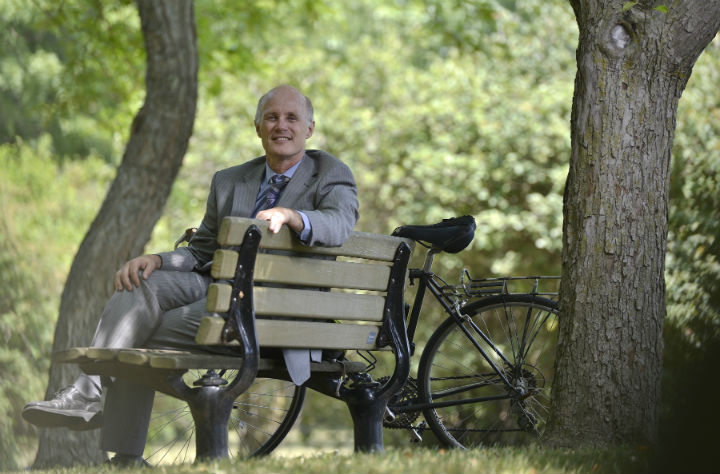For the holidays, Global News is releasing questions and answers with local leaders in Barrie and Simcoe County so that residents can get to know their officials better.

In this installment, the Simcoe Muskoka District Health Unit’s medical officer of health, Charles Gardner, reflects on the last decade and where Simcoe County and the District of Muskoka could be headed in terms of health.
Global News: What were you doing in 2010 and how does that contribute to where you are today?
Charles Gardner: In 2009, public health throughout the world responded to an influenza pandemic. This required us to stop most of our regular program delivery and re-deploy our staff to vaccinate the population against this new influenza strain over a six-week period late in the year.
Moving into the new year of 2010, we were recovering from our response to the pandemic and commencing our health protection, health promotion and disease prevention programming. At that time, we also had to continue with our preparations to manage the impacts on our communities from the G8 summit. Responding to communicable disease outbreaks, which happen frequently each year, and to community emergencies will always be the highest-profile aspects of our public health mandate.
GN: How were you hoping things might shape up in Simcoe Muskoka over the last decade in terms of health and wellness (from 2010 until now)?
Gardner: Our staff and board of health had always focused on the full provision of the many programs that we’ve offered to prevent disease. Our board continued to maintain and fulfill strategic plans, with a focus on the determinants of health, putting a spotlight on municipal, provincial and federal government policy changes needed to create healthy living conditions for all.
Over the last 15 years, our work has included advocacy for healthy public policy and action on tobacco and alcohol control, changing the design of our communities to encourage and support people to safely walk, cycle and use public transit, enhancing green spaces in our neighbourhoods and better ensuring access to the basic needs. In more recent years, this has included advocacy for a guaranteed annual income.
GN: How did events end up shaping up in the last decade?
GN: How has the make-up of Simcoe Muskoka changed over the last decade? How does this drive your decisions?
Gardner: New issues arise, and we respond. The legalization of cannabis requires us to provide guidance and support to our municipalities. The tragic and rapid rise of opioid poisoning and deaths in our communities has been a great concern to us, and we’ve worked with healthcare partners, social service agencies, police agencies, the education sector, upper-tier municipalities and others to create a plan of action. Opioid deaths continue to be alarmingly high, and we continue to put a great deal of our resources behind its control.

GN: Do you think the health unit has been able to address gaps in the system over the last decade? If so, how has the health unit been able to do this?
GN: Do you think the health unit has been able to improve access to health services and programs over the last decade? If so, how has the health unit been able to do this? What has it done specifically to improve access?
Gardner: It is our work with the very young that carries the greatest potential for the improvement of population health. The board has advocated for breastfeeding-friendly policies. Our work in reproductive and child health is essential. This has included our Healthy Babies Healthy Children program, a home visitation program for newborns in vulnerable circumstances.
GN: What do you think is the biggest challenge facing Simcoe Muskoka over the next decade in terms of health and wellness?
Gardner: Climate change has been identified by the World Health Organization as the defining public health issue of our time. Since 2014, climate change has been a strategic priority of our board, leading us to develop a health vulnerability assessment of our communities, with projections on climate change health impacts into the 2080s. Much of our work with our communities over the years does much to reduce our carbon footprint and to prepare us for the changing climate that will come.
Over the next decade and beyond, our full intention is to work with our communities toward the substantial changes needed to manage the climate crisis, while also reaping the health benefits that come with such changes. In having our communities become less car dependent, to be complete, compact, connected and green, and to employ a just transition that doesn’t leave anyone behind, we will go a long way to achieving health for all.
Such changes will not be easy, but also they will not be avoidable if we are to succeed in managing the climate crisis.




Comments